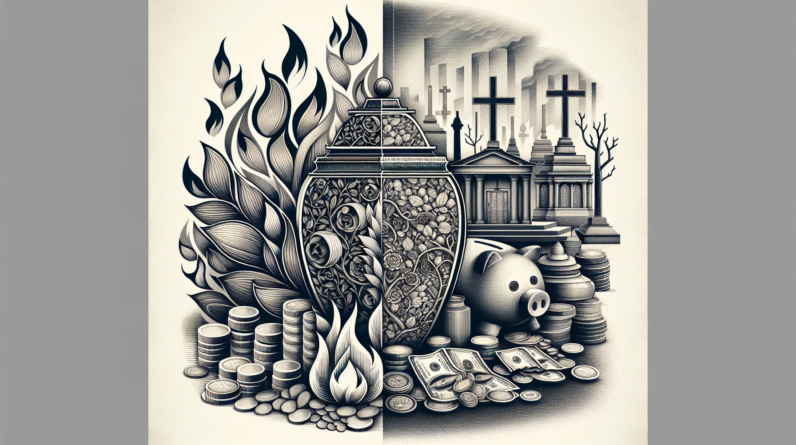
Houston, let’s talk about cremation. Have you ever wondered what happens to our bodies after we pass away? Well, one popular option is cremation. Cremation is the process of reducing a deceased person’s body to its basic elements through high-temperature burning. It is a choice that many individuals and families in Houston opt for as a way to respectfully and permanently take care of their loved ones’ remains. In this article, we will explore the process of cremation, its cultural significance, and its increasing popularity in Houston and beyond. So, let’s delve into the world of cremation and discover more about this fascinating practice.

What Is Cremation
Cremation is a process used to reduce a deceased body to ashes and bone fragments through the application of intense heat. It is an alternative to traditional burial and has become increasingly popular in recent years due to its flexibility and affordability.
Definition of Cremation
Cremation is the process of subjecting a deceased body to high temperatures, typically around 1800 degrees Fahrenheit, in order to reduce it to its basic elements. The body is carefully placed in a specially designed cremation chamber, also known as a retort. Once inside the retort, the body is subjected to direct heat and flame, which breaks down the organic matter and eliminates any remaining moisture. The result is a collection of bone fragments and fine ashes, which are then carefully processed and placed in an urn or another container for final disposition.
Historical Background
The practice of cremation dates back thousands of years and has been used by various civilizations throughout history. The ancient Greeks, for example, believed that cremation freed the soul from the body, allowing it to move on to the afterlife. In more recent times, cremation has gained widespread acceptance due to changes in societal attitudes and religious beliefs. It became popular in the United States in the late 19th century and has continued to grow in popularity ever since.
Cultural and Religious Significance
Cremation holds different cultural and religious significance depending on one’s beliefs and background. In some cultures, cremation is seen as a respectful and dignified way to honor the deceased. For others, it is a religious obligation or a traditional practice passed down through generations. In many Western societies, cremation is viewed as a practical and more environmentally friendly option compared to burial. The choice between cremation and burial often reflects personal, cultural, and religious values.
Cremation Process
The cremation process involves several steps to ensure the respectful and efficient treatment of the deceased. First, the body is prepared for cremation by removing any metal objects, such as jewelry or medical implants, which could interfere with the process. The body is then placed in a combustible container, typically made of wood or cardboard, to facilitate the cremation process. Once inside the retort, the chamber is heated to a high temperature, and the body undergoes several hours of intense heat and flame. After the cremation, the remains are cooled and carefully processed to remove any remaining bone fragments. The ashes and bone fragments are then placed in an urn or another container for final disposition.
Legal Aspects and Regulations
Cremation is regulated by various laws and regulations to ensure the proper handling and disposal of human remains. In the United States, state laws govern the operation of crematories and the handling of cremated remains. Additionally, cremations must be performed by licensed professionals who adhere to strict guidelines to maintain the dignity and respect of the deceased. A cremation authorization form is typically required, ensuring that the decision to cremate is made by the appropriate authorities or the deceased’s next of kin.
Cremation vs. Burial
One of the primary considerations when choosing between cremation and burial is the individual’s personal preferences and beliefs. Cremation offers several advantages over traditional burial, including cost, flexibility in memorialization options, and space conservation. Cremated remains can be kept in an urn, scattered in a meaningful location, or even incorporated into memorial jewelry. On the other hand, burial provides a physical location for loved ones to visit and pay their respects. It is essential to consider these factors and discuss them with loved ones when making end-of-life arrangements.
Cremation Services in Houston
Houston, as a vibrant and diverse city, offers a range of cremation services to cater to the needs and preferences of its residents. Numerous funeral homes, crematories, and memorial service providers in Houston offer comprehensive cremation services, ensuring that the cremation process is carried out with the utmost care and respect. Families can choose from various options, such as direct cremation, which skips traditional funeral services, or full-service cremation, which includes a memorial ceremony or viewing before cremation.
Costs Associated with Cremation
Cremation generally offers significant cost savings compared to traditional burial, making it an attractive option for many individuals and families in Houston. The total cost of cremation varies depending on several factors, including the choice of funeral home, the specific services selected, and any additional memorialization options. In Houston, the average cost of a basic cremation can range from $1,000 to $3,000, while additional services and urns may increase the overall cost.
Environmental Impact of Cremation
Cremation is often considered a more environmentally friendly option compared to traditional burial. While burial requires land for cemeteries and the use of embalming chemicals, cremation reduces the space needed and eliminates the need for embalming. However, the cremation process does produce carbon emissions, primarily from the use of natural gas or propane in the retort. Some crematories in Houston have taken steps to reduce their environmental impact by adopting more efficient equipment and implementing sustainable practices.
Emotional Considerations and Support
Choosing cremation or burial is a deeply personal decision that can have emotional implications for those left behind. It is essential to consider the emotional needs and preferences of the deceased and their loved ones when making end-of-life arrangements. Funeral homes and cremation service providers in Houston often offer grief support services and counseling to help individuals and families navigate the emotional journey associated with loss. Support groups and resources are also available within the Houston community to provide assistance and comfort during these difficult times.
In conclusion, cremation is a process that offers an alternative to traditional burial and has gained widespread acceptance due to its flexibility and affordability. With its deep-rooted historical background and cultural significance, cremation provides individuals and families in Houston with various options to honor and memorialize their loved ones. It is crucial to consider the legal aspects, costs, environmental impact, and emotional considerations associated with cremation when making end-of-life arrangements. Houston’s diverse range of cremation services and support resources ensure that individuals can find the necessary support and guidance when navigating this sensitive and personal decision.






